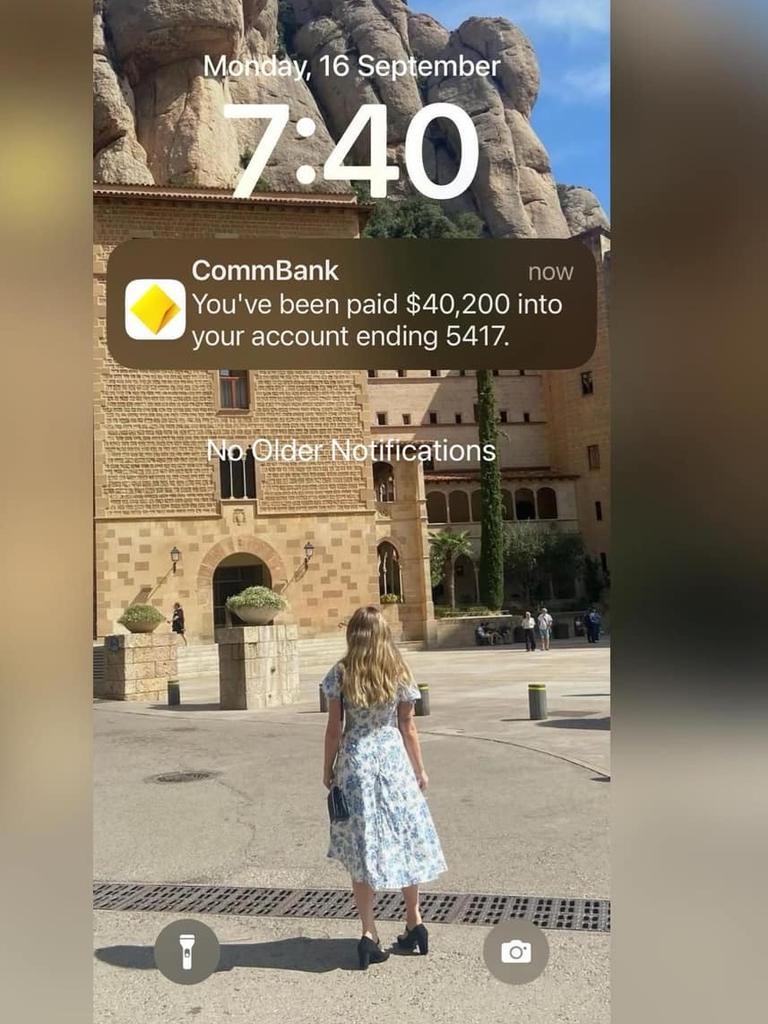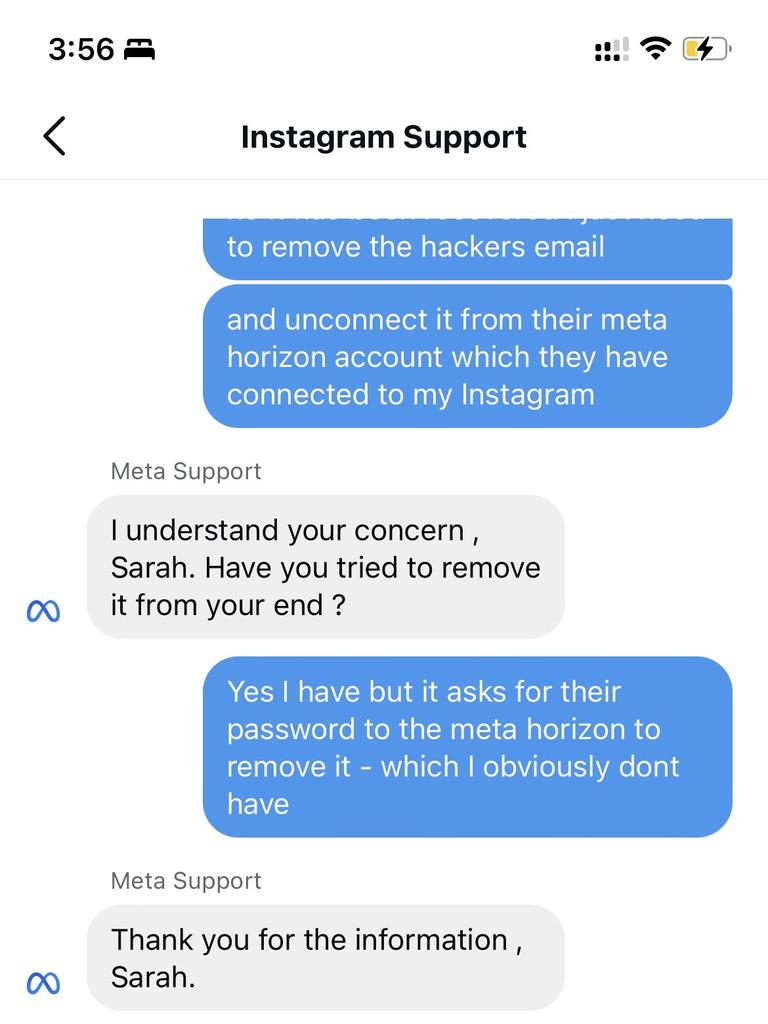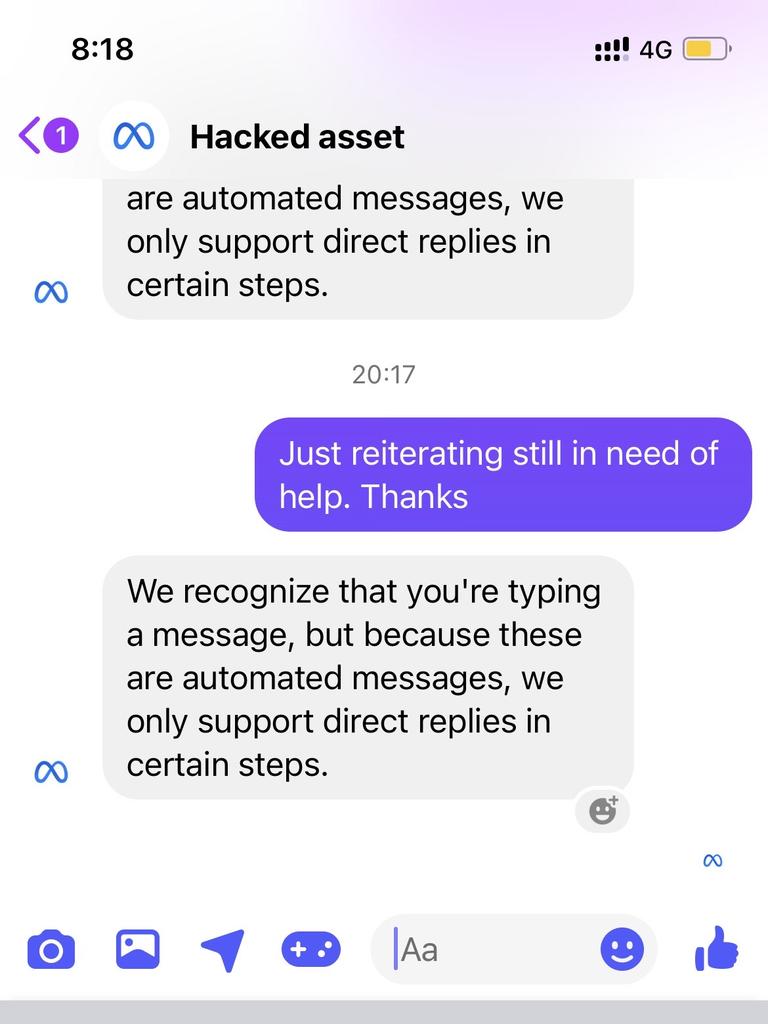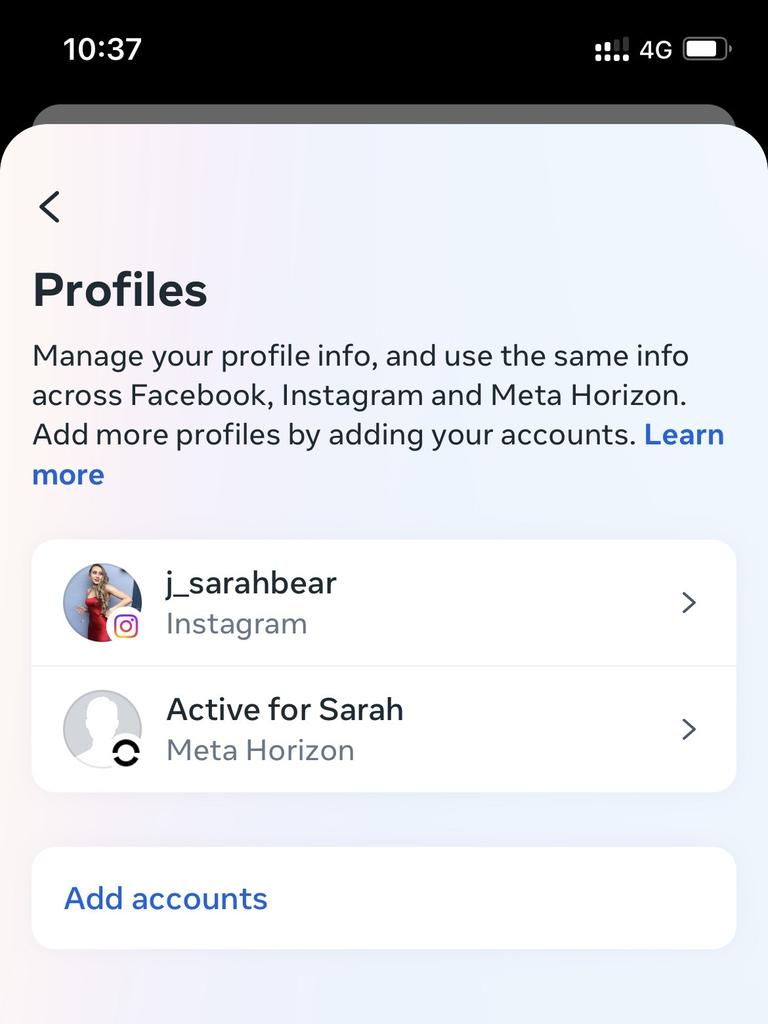Why you should leave the Meta verse
If your Instagram or Facebook account is hacked, don’t expect to get help without coughing up some cash - and the scam itself is terrifying.
I had just ordered my first glass of sangria for the night when it happened.
I was holidaying in Seville and had just sat down for dinner after watching the sunset over the Guadalquivir River.
“Someone has accessed your Instagram account. Was this you?”, a message read on my phone.
My stomach dropped.
Before I could click the link, my phone suddenly lit up like a Christmas tree.
“Someone has changed the main email to your Instagram. Someone has accessed your Facebook. Someone has changed your Facebook email. Someone has accessed your email account from a new device.”
What came next was nothing short of one of the most stressful experiences of my life.
I’d always heard about people having their social media accounts hacked, but honestly, I always had that sense of “couldn’t happen to me”.
After all, I was too savvy to be flattered by a Nigerian prince, I never bought resale tickets outside Tixel, and I was a digital journalist.
I was too young, too cynical and too tech-savvy to be hacked, right?
Looking back, I can’t believe how wrong I was.
I’m glad I was only on my first drink because suddenly, I felt I was in the fight of my life.
It was as if they had slowly accumulated my data over a period of time and then struck all at once - like a lion stalking its prey.

Every time I managed to get back into my account, the hacker would abruptly kick me out.
I’d plug in my phone number to get a verification code, only to be told my number had suddenly changed.
After about an hour of this horrific back and forth, my lovely boyfriend, who was just as confused as I was about how this could have happened, ordered us an Uber back to the hotel.
On the ride back, suddenly every message, photo, and file I’d ever sent through my Facebook, Instagram, and email accounts was flooding my brain.
I’d had my Facebook since Year 9. My Instagram since Year 11. My email since, well, god knows when.
Someone or something had access to it all.
What were the hackers planning to do with it?
Soon enough, my Facebook page was “selling” Coldplay tickets to just about every group I belonged to.
My Instagram page edited my own photos to flog cryptocurrency.


We didn’t end up eating dinner until about 1am.
Once we worked out the hacker had access to my email, and promptly changed it, the access they had was limited.
But pretty soon Facebook and Instagram’s verification methods quickly became a problem in themselves.
The hackers had somehow made a Meta VR headset in my name and email. (I had no idea Meta even had VR. What do you do in a Meta universe, have dinner with Mark Zuckerberg and discuss the latest Minion memes posted by your grandparents?)
The hackers had somehow used this to set up two-factor authentication and connected it directly to my Instagram and Facebook accounts.
It gave them a full separate reign to my accounts.
Clearly, this was not the hacker’s first rodeo.
I quickly found out that you can’t ask for support from Instagram or Facebook. To do that you have to pay for Meta premium; and because the hacker had separated my accounts from each other – just to make it that extra level harder for me to get them back – I had to pay for it twice.
Social media is a journalist’s bread and butter these days – so I sucked it up and coughed up the $50 or so bucks.


God, I wish I didn’t.
Later, I found pages and pages of Reddit forums filled with users going through the same thing, who had paid Mr Zuckerberg some coinage in their time of need just for a little help.
My $50 got me multiple “support people” who just linked me back to the generic help page at Instagram.
It got me thinking: is this a scam in itself? Why would Meta help you get your accounts back when every person I read about paid the $50 or so dollars in a desperate attempt to get their security back?
This idea was doubled down in my mind when Instagram’s “verification” method failed to even work.
They told me they contacted two of my Instagram friends who had to verify that I was indeed who I said I was.
I video-called both of my friends who Instagram said they would reach out to. One of them got a link to verify, the other heard nothing.


After about six hours, about a million emails, password changes and verification methods, I managed to get my Facebook back.
For Instagram, it took about three days after sending multiple “selfie videos” with one of them eventually verifying my identity.
After regaining my accounts, I looked into my Inbox. These hackers were directly messaging some of my friends to scam them.
Luckily, none fell for it. Meta certainly wasn’t helping if they did.
One of the hacker’s emails is still attached to my Instagram account. I’ve messaged Meta countless times to get it removed to no avail.
So I guess my new “security method” is to hope and pray.
These hackers knew it all. They were quick and smart. Every time I had a brief moment of access they would rip it right back.
They had Meta wrapped around their virtual fingers.
So what happens when these hackers get a real hold of AI?
What next, deepfake videos of me spruiking crypto? AI calls with my voice flogging cheap concert tickets to my mates?
All I can say is if it happens, Meta won’t be helping us.
The scary thing is I still don’t know how the hackers got my details.
More Coverage
I’m with Medibank, so my details might have been compromised during their 2022 leak.
I also connected to multiple airport WiFis throughout my trip, which are notorious data breach hotspots, but sometimes, these are inevitable, especially when arriving somewhere for the first time. So I can’t really tell you what to avoid.
But I can tell you this: change all your passwords now, turn on two-factor authentication and consider a future away from Meta, perhaps in an off-the-grid meadow somewhere – because after this experience, I certainly am.




